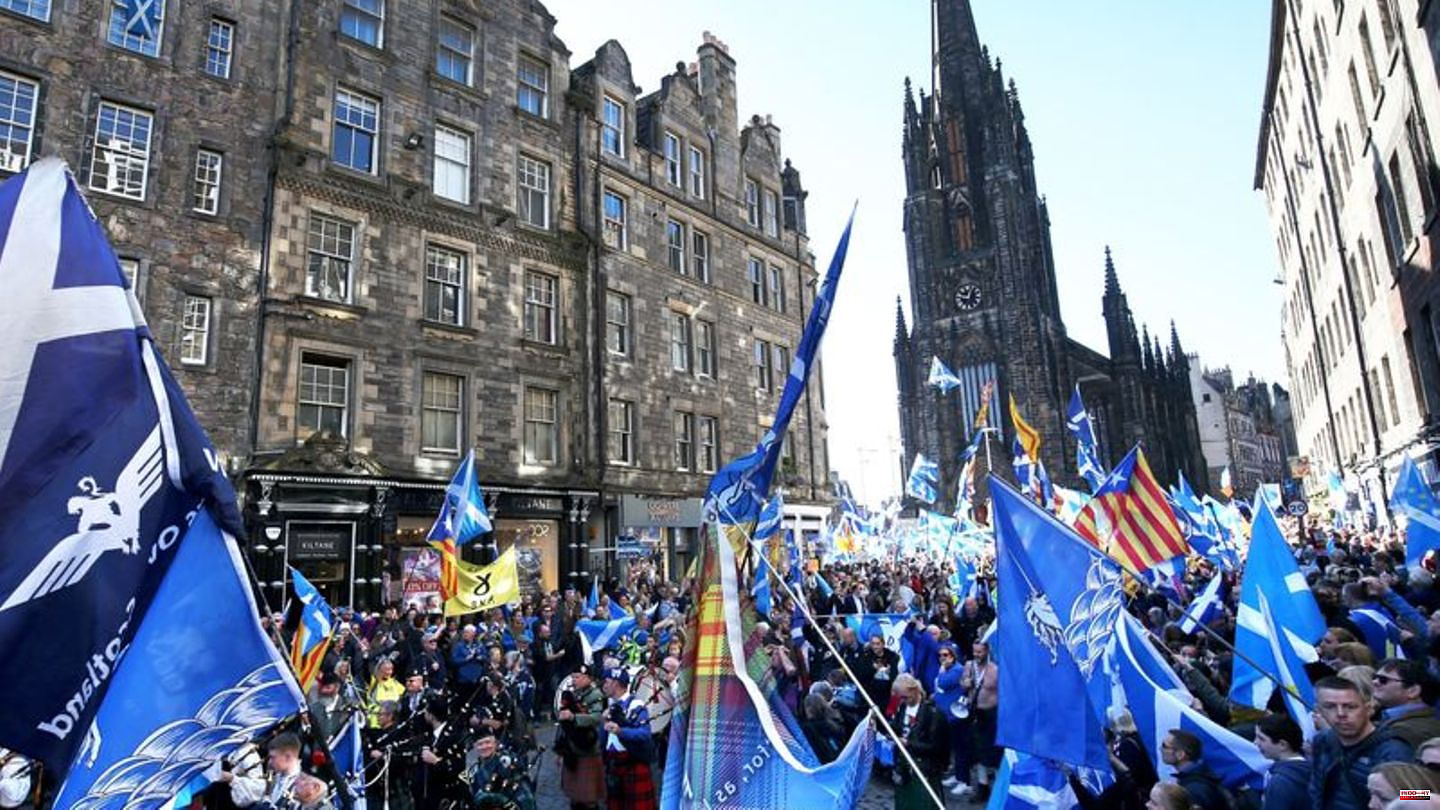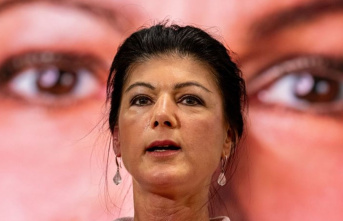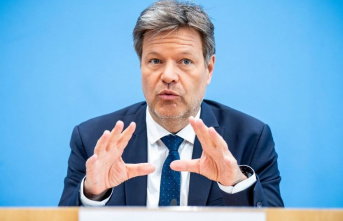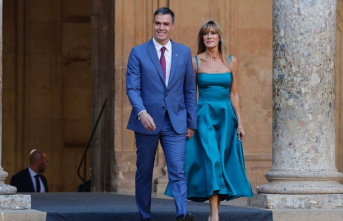The Scottish Parliament cannot hold an independence referendum without the approval of London. Despite the decision of the highest British judges, the debate about detaching the northernmost part of the country is anything but over. British Prime Minister Rishi Sunak spoke of a "clear and final verdict" on Wednesday. But Scotland's Prime Minister Nicola Sturgeon announced that she would stick to the independence course and sharpened the tone against London.
"We should have no doubt that democracy is at stake from today," Sturgeon said in Edinburgh. The ruling, which she acknowledges, has disproved the "myth" that the UK is a voluntary union of partners. The independence campaign Time for Scotland rhetorically asked, "Is this a union or a prison?" Liz Saville Roberts, leader of the pro-independence Plaid Cymru party, said: "This judgment exposes the fundamentally undemocratic nature of Westminster rule."
Next election de facto referendum
Sturgeon spoke of a "bitter pill", but made it clear that her Scottish National Party (SNP) would now conduct the British general election planned for 2024 as a de facto referendum. Should pro-independence supporters - which include the Greens and SNP splinter Alba - win a majority, Sturgeon will take the vote as a mandate to leave, the BBC commented. Political scientist Kirsty Hughes called the move clever. Because if a majority of Scots actually vote for these parties, the pressure on London will continue to increase.
Other experts, however, consider Sturgeon's course to be risky. Pollster James Johnson tweeted: "I expect this to be a gift to Labor in Scotland. Scottish swing voters are fed up with the referendum babble." The Labor Party, which opposes independence, once ruled Scotland but has lost massive votes in recent years to the SNP, which has similar social democratic positions. In polls, the yes and no camps have been roughly equal for a long time.
Changed starting position
The Scottish government had asked the Supreme Court to clarify whether the regional parliament in Edinburgh could call a referendum without the consent of London. Sturgeon had scheduled such an "advisory" and non-binding vote for 2023. In a first referendum in 2014, a majority of Scots voted to remain in the Union. For London, the question has since been decided. However, Sturgeon argues that Brexit, which the Scots clearly rejected in 2016, has changed the situation. She wants to lead an independent Scotland back into the EU. In Edinburgh, the pro-independence majority is in the majority.
"The Scottish Parliament does not have the power to legislate for a referendum on Scottish independence," said Chief Justice Robert Reed. Because the question falls under the matters reserved for the central government. Prime Minister Sturgeon said she was ready to talk to Sunak about an agreement for a new referendum at any time. But she is sure that he will refuse.
In the UK Parliament, the prime minister dodged questions from SNP MPs about how he could confidently speak of a voluntary union when he was denying Scotland the right to a democratic decision in an independence referendum. Instead, Sunak sided with former Prime Minister Theresa May's statement urging the SNP to end its "obsession" with independence. UK Secretary of State for Scotland Alister Jack stressed: "If we work together as one United Kingdom, we will be safer, stronger and more prosperous." Anti-independence opponents insist secession will severely damage Scotland's economy.
In the late afternoon, numerous people wanted to demonstrate in several Scottish cities for the independence of their part of the country. Smaller meetings were also planned in some European cities such as Berlin and Munich.












